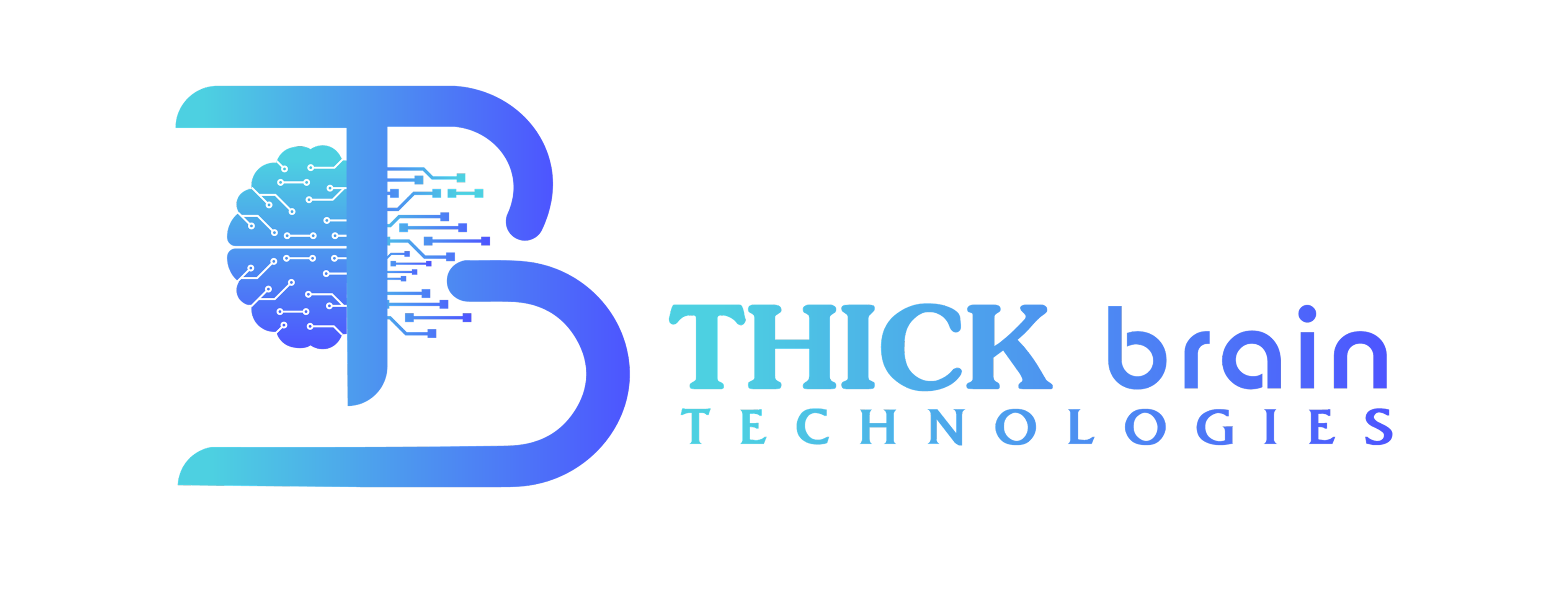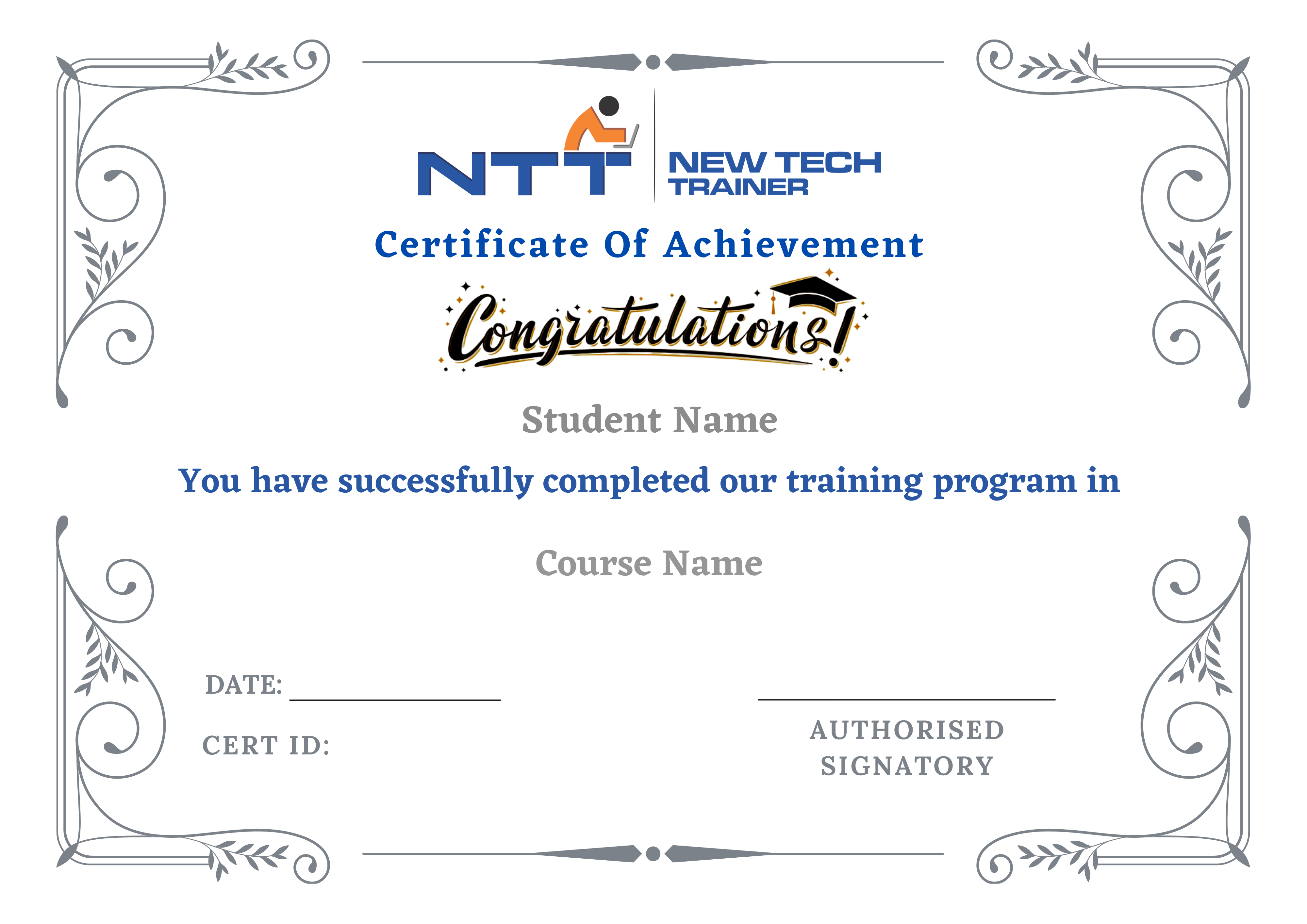Upcoming Batch Schedule for AWS Training in Bangalore
New Tech Trainer provides flexible batch timings to all our students.If this schedule doesn’t match please let us know.
| 10-06-2021 | Thu (Mon – Fri)WEEKDAYS BATCH | @08:00 AM (IST)(Class 1Hr – 1:30Hrs) / Per Session | Get Quotes |
| 10-06-2021 | Thu (Mon – Fri)WEEKDAYS BATCH | @08:00 AM (IST)(Class 1Hr – 1:30Hrs) / Per Session | Get Quotes |
| 10-06-2021 | Thu (Mon – Fri)WEEKDAYS BATCH | @08:00 AM (IST)(Class 1Hr – 1:30Hrs) / Per Session | Get Quotes |
|
Can’t find a batch you were looking for? |
|||
DevOps Training & Certification Course in Bangalore Overview
Our DevOps online training is your gateway to mastering the art of recent software delivery. With comprehensive content, hands-on experience, and expert guidance, you’ll develop the talents necessary to excel within the DevOps landscape. Join best DevOps institute in Bangalore and start a transformative journey which will enhance your career prospects and drive success for your organization.
Key Benefits of best DevOps Online Training:
Comprehensive Curriculum
Our educational program covers a good range of DevOps topics, ensuring you gain a holistic understanding of the discipline. From continuous integration and delivery to physical infrastructure and cloud computing env by automation, we have got you covered.
Practical Hands-on Experience
Through hands-on exercises and real-world projects, you'll gain practical experience working with industry-standard projects and techniques. this may enable you to confidently apply your knowledge to real-world scenarios.
Expert Instructors
Our experienced instructors bring deep industry knowledge and expertise to the training. they're going to guide you thru the course material, answer your questions, and supply valuable insights supported their real-world experience.
Flexible Learning
Our online training allows you to find out at your own pace and convenience. Access the course material from anywhere, at any time, and replay the teachings as repeatedly as you would like to strengthen your understanding.
Industry-Recognized Certification
successful completion of the training, you'll receive a NTT certificate that demonstrates your proficiency in DevOps. This certification will enhance your credibility and open doors to new career opportunities. We proudly say we are the Best DevOps Training Institute in Bangalore
Course Outline
Introduction to DevOps: Understanding the core principles and benefits of DevOps.
DevOps Culture and Collaboration: Fostering collaboration and breaking down silos between development and operations teams.
Continuous Integration and Continuous Delivery (CI/CD): Implementing automated build, test, and deployment pipelines.
Infrastructure as Code (IaC): Managing infrastructure using configuration management tools like Ansible, Chef, and Puppet.
Containerization and Orchestration: Exploring Docker, Kubernetes, and other containerization technologies for scalable and efficient deployments.
Cloud Computing and DevOps: Leveraging cloud platforms like AWS, Azure, and GCP for scalable and versatile infrastructure.
Monitoring and Logging: Implementing monitoring and logging solutions to realize insights into application performance and troubleshoot issues.
Security and Compliance: Incorporating security practices into the DevOps workflow and ensuring compliance with industry standards.
DevOps Toolchain: Exploring popular DevOps tools like Jenkins, Git, Docker, and more.
DevOps Best Practices and Case Studies: Learning from real-world samples of successful DevOps implementations with best devops institute in Marathahalli.
Skills Covered
- Introduction to DevOps lifecycle
- Overview on Planning and architecting the DevOps process
- Git/GitHub for source code management
- ansible for Deployment and configuration management
- Jenkins for orchestration
- Docker for containerization
- Nexus for antifactory Management
- Maven for build and packaging
DevOps FAQ’s
What is DevOps?
DevOps, a combination of "development" and "operations," is a software development approach that emphasizes collaboration and communication between development teams and IT operations. It aims to streamline the software delivery process, enabling organizations to deliver applications more efficiently and reliably.
What are the key principles of DevOps?
The key principles of DevOps include:
Collaboration: DevOps encourages close collaboration between developers, operations teams, and other stakeholders involved in the software development lifecycle.
Automation: Automating repetitive tasks, such as testing and deployment, allows for faster and more reliable software delivery.
Continuous Integration and Deployment: DevOps promotes the practice of continuously integrating code changes into a shared repository and deploying them to production environments frequently.
Monitoring and Feedback: Monitoring the performance and gathering feedback from users enables teams to identify and address issues promptly, ensuring continuous improvement.
How does DevOps improve software development?
DevOps brings several benefits to software development, including:
Faster Time-to-Market: By streamlining the development and deployment processes, DevOps enables organizations to release software updates and new features more quickly.
Improved Collaboration: DevOps breaks down silos between different teams, fostering collaboration and knowledge sharing, which leads to better outcomes.
Enhanced Quality and Stability: With continuous integration and automated testing, DevOps helps identify and fix issues earlier in the development cycle, resulting in more stable and reliable software.
Scalability and Flexibility: DevOps practices enable organizations to scale their infrastructure and applications efficiently, accommodating changing business needs.
What tools are commonly used in DevOps?
DevOps employs a variety of tools to facilitate collaboration, automation, and continuous delivery. Some popular DevOps tools include:
Version Control Systems (VCS): Git, Subversion (SVN)
Continuous Integration (CI) and Continuous Deployment (CD) Tools: Jenkins, Travis CI, CircleCI
Configuration Management Tools: Ansible, Chef, Puppet
Containerization Tools: Docker, Kubernetes
Monitoring and Logging Tools: Prometheus, ELK Stack (Elasticsearch, Logstash, Kibana)
How can I implement DevOps in my organization?
Implementing DevOps requires careful planning and execution. Here are some steps to help you get started:
Assess Your Current State: Evaluate your existing processes, infrastructure, and team dynamics to identify areas for improvement.
Define Goals and Key Metrics: Clearly define what you want to achieve with DevOps and establish measurable metrics to track your progress.
Encourage Collaboration: Foster a culture of collaboration, trust, and shared responsibility among your development and operations teams.
Automate and Orchestrate: Identify repetitive and time-consuming tasks and automate them using appropriate tools.
Adopt DevOps Practices: Gradually introduce DevOps practices like continuous integration, automated testing, and infrastructure as code.
Monitor and Optimize: Implement robust monitoring and feedback mechanisms to identify bottlenecks and continuously optimize your processes.
DEVOPS Training Key Features
10+
Hours of theory classes
20+
Hours of live demo
2+
Real-time industry projects
4+
Hours of Q&A Session
2+
MOC exams test which help to pass exam
40+
Hours of training
Flexible timing
Module1: Introduction to DevOps
- DevOps Principles in detail
- DevOps Engineer Skills in the market
- Knowing DevOps Delivery Pipeline
- Market trend of DevOps
- DevOps Technical Challenges
- Tools we use in DevOps
Module 2: GIT – A version control tool
Intro about Version control
How to setup GIT
- Installing Git using yum
- Git Setup in Linux and windows
- Initializing git in local
Understanding various commands in GIT
- Check the Status of Files in working directory
- Track New Files in working directory
- Staging the modified files
- Viewing Your Un-staged and Staged file Changes
- Committing Changes from staging area to local repo
- Skipping the Staging Area and commit
- Removing Files from GIT
Viewing the Commit History
- Limiting Log Output
- Checking commit history
Undoing Things
- Changing Your Last Commit
- Un-stage a Staged File
Working with Remotes
- Creating GitHub remote repository
- Adding Remote Repositories to git
- Fetching and Pulling projects from Remote repository
- Pushing files to Remote repository
- Inspecting Remote repository
Working with Remotes
- Intro about benching and use cases
- Understanding about Branching and Merging
- Branching Workflows and its usage
- Create and delete branch
- Git cheat sheet
Module 3: Jenkins – Continuous integration
Essentials of Continuous Integration
An example scenario where CI is used
Know about Jenkins and its architecture in detail
Jenkins tool Management in detail
Installing Jenkins
Post-installation setup wizard
- Unlocking Jenkins
- Customizing Jenkins with plugins
- Creating the first administrator user
Know about User management in Jenkins
Authentication
- Jenkins own database user creation
Authorization
- Matrix based authorization
- Project based authorization
Overview of Maven
- Maven project structure
- Maven plugins
- Project Object Model (POM) – fundamental unit of work in Maven project
- Maven build lifecycle
- Adding external dependencies to maven pom.xml
- Maven build and test project
Creating jobs and automatic build settings
- What is Jenkins Pipeline?
- Why Pipeline?
- Integration with GIT
- How to enable project-based authorization for a job
- Source code management while creating jobs
- Triggering automated build
- Maven job setup
- Know about post build options for jobs like notifications, trigger another build, publishing reports, etc.
- Adding a slave node to Jenkins
- Building Delivery Pipeline
- Notification settings in Jenkins
- Plugin management in Jenkins
Nexus private Artifactory tool
- Installing nexus antifactory tool
- Creating maven store in nexus
- Triggering maven deploy to store version wise .war antifactory in nexus repository.
Docker for containerization
Introduction
- Introducing Docker Service
- Understanding Docker functionalities
Docker Images
- Understanding about docker images
- Image search
- Pulling images to local registry
- Removing images from local registry
Docker container
- Understanding container Life Cycle
- Deploying containers with interactive and detach mode
- Exposing internal and external port for app access
- Accessing running containers
- Creating containers with privileged access to run root level commands
- How to use Base Image and customize
- Creation of Docker File
- How to Publish Image on Docker Hub
Introduction to Docker Networking
- Network Types in docker technology
- Docker Container Networking
- Docker Compose – An introduction
Docker Swarm – An introduction
- Use Docker Compose to create php, WordPress, MySQL
- How to Start Containers on a Cluster with Docker Swarm
- Creating and Scaling an application in Docker swarm
Module 6: Ansible – A configuration Management
Introducing Ansible – A configuration management tool
- Basics / What Will Be Installed
- Understanding Ansible architecture
- Control Machine Requirements
- Managed Node Requirements
Inventory
- Hosts and Groups
- Host Variables
- Group Variables
Learn various ansible Modules
How to use AD-hoc commands
- Parallelism and Shell Commands
- File Transfer
- Managing Packages
- Users and Groups
- Deploying from Source Control
- Managing Services
Introduction to YAML script
Playbook
- About Playbooks
- Playbook Language Example – YAML
- How to Write Playbooks
- Tasks in Playbooks
- Understanding about various tasks in playbook
- Introduction to Handlers and variables
- Learn about using handlers, variables in the playbook
- Become (Privilege Escalation)
Roles
- Role Directory Structure
- Using Roles
- Role Duplication and Execution
- Role Default Variables
- Role Dependencies
- Role Search Path
- Ansible Galaxy
Including and Importing
- Includes vs. Imports
- Importing Playbooks
- Including and Importing Task Files
- Including and Importing Roles
Writing a playbook to install and configure webservers and deplo0y an application
How to create Ansible Role and use it
Using an ansible role in playbook
How to use Ansible Galaxy to download roles.
Example – Install and use Jenkins roles from ansible galaxy.
What we learn in this DEVOPS program.
Continuous Integration and Continuous Delivery (CI/CD)
DevOps improves the integration of code changes and the continuous delivery of software to production environments. Learners understand how to set up automated build, test, and deployment pipelines to ensure efficient and reliable software releases.
Version Control
Version control systems like Git are essential tools in DevOps. Training covers the basics of version control, including branching, merging, and resolving conflicts, enabling learners to collaborate effectively and track changes in code repositories.
Infrastructure as Code (IaC)
Infrastructure as Code is a fundamental concept in DevOps that involves managing and provisioning infrastructure through code. Learners gain knowledge of tools like Ansible, Terraform, and Puppet to automate the setup and configuration of infrastructure resources.
Containerization and Orchestration
Containers, such as Docker, provide a lightweight and consistent environment for deploying applications. DevOps training familiarizes learners with containerization principles and container orchestration platforms like Kubernetes to efficiently manage containerized applications at scale.
Monitoring and Logging
Monitoring application performance, infrastructure health, and logging are crucial aspects of DevOps. Learners explore monitoring tools like Prometheus, Grafan to gain insights into system behaviour and troubleshoot issues proactively.
Cloud Computing
Understanding cloud platforms like Amazon Web Services (AWS), Microsoft Azure, and Google Cloud Platform (GCP) is vital in DevOps. Training provides insights into cloud services, scalability, elasticity, and the ability to deploy applications in a cloud environment.
Collaboration and Communication
DevOps enables the effective communication between development, operations, and other stakeholders by implementing the agile methods. Learners explore collaboration tools like Jira, Confluence, and Slack to facilitate seamless communication, task management, and knowledge sharing.
Security and Compliance
DevOps training addresses security concerns and compliance requirements in software development and operations. Learners gain an understanding of security best practices, vulnerability scanning, secure code practices, and compliance frameworks like GDPR and HIPAA.
Continuous Learning and Improvement
DevOps is closely aligned with Agile methodologies, emphasizing iterative development, frequent feedback, and adaptability. Learners understand Agile principles and practices such as Scrum and Kanban to foster agility, transparency, and collaboration within teams.
Kubernetes Ecosystem and Integrations
Training provides an overview of the broader Kubernetes ecosystem and its integration with other technologies and tools. Participants learn about popular add-ons, such as monitoring systems, logging solutions, and service meshes.
Troubleshooting and Debugging
Participants learn techniques for troubleshooting common issues and debugging applications in Kubernetes. They understand how to analyse logs, diagnose performance problems, and resolve issues related to application deployment and configuration.
Hiring Companies














How do I get certificate from NewTechTrainers?
Here we will provide certification from our organization which is valid for 2 year where you can show with any IT organizations, to enable your certification
Attend and complete AWS Training
Complete a hands-on project with mock test where pass mark is 70%.
Trainer Profile
- More than 8+ Years of Experience.
- Trained more than 3000+ students in past years.
- Strong Theoretical & Practical Knowledge in the subject.
- Always we hire Certified Professionals trainers.
- Trainers are well connected with Hiring HRs in multinational companies.
- Expert level Subject Knowledge and fully up-to-date on real-world industry applications.
- Trainers have worked with multiple real-time projects in corporate Industries.
- All Our Trainers are working with multinational companies such as CTS, TCS, HCL Technologies, ZOHO, IBM, HP, Microland, Infosys Technologies etc…
- Our trainers help the candidates in completing their projects and even prepare them for interview questions and answers.

Why to choose NewTechTrainers?
We train India is the best online training course provider India with 10+ years of Experienced professionals as Trainers. We will provide
- Fully hands-on training with live projects
- Professionals as trainers and helping on Interview preparation
- Completed 500+ batches in short period
- job-oriented training & Certification guidance
- we provide best offers on all the courses.
How about trainers and how they train us?
- Our trainers are more than 10+ years of experience in relevant technologies.
- We choose our trainers who working on real-world industry project and who working in multinational companies. Our trainers are certified professionals in subject.
- Trainers Trained more than 2000+ students and having Strong theoretical & practical knowledge.
Course duration and timing?
- 40+ hours course training duration
- We are very flexible and we will arrange trainings based on your timing and trainer availability
Support on resume and interview?
We will support on high quality resume preparation which helps you to showcase in your interview.
Our trainers will take each topic with interview scenario question which help to understand the subject and prepare you for interview process.
How online section will be conducted?
We will share the zoom sections where you can connect to attend the training.
What we will gain post completing the course?
Post completing the training with us, you will be having batter understanding about DevOps Tools and how to deploy/manage the antifactory into infra service. By this knowledge you can clear your interview easily.





